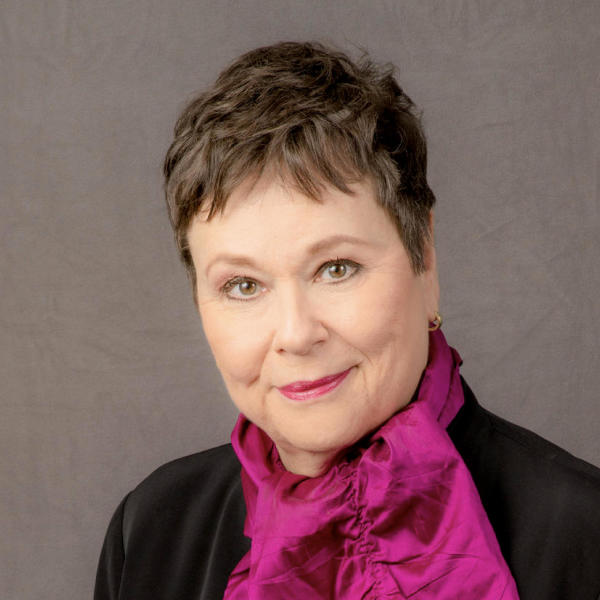A Grand Plan for Pianos
We at "Sunday Morning" are great fans of the piano. So when we heard of a piano-loving place that far outdoes us, we just had to send Martha Teichner to investigate:
The campus can't contain it: There's music, everywhere.
Not just on stages. From practice rooms it escapes into hallways, it seeps under doorways.
It infects everyone with its glorious exuberance.
Since 1867, what is now called the College-Conservatory of Music and is part of the University of Cincinnati, has been known for its excellence, but unfortunately not well known enough to compete with more famous schools - New York's Juilliard, for example.
When Douglas Knehans became dean last September, he set out to change that.
"My ambition for this school is to be a global player, to be one of the best music schools in the world," he told Teichner, "and indeed, it really already is."
But how to get the world to recognize it? Even before being hired, Knehans noticed something.
"I was just so impressed when I walked through this building, except for the pianos," he said.
Eric Wolfley, in charge of maintaining the school's 200-plus pianos, would have to constantly rebuild worn-out wrecks, many of them older than he was. One model in his workshop dates from 1904.
Not any more, thanks to Dean Knehans and his grand plan.
"I just laid the charge down to the faculty at my first interview," remarked Knehans. "I said, 'Let's make this an all-Steinway school. And I think there was enthusiasm, a little bit of incredulous laughter!'"
Only the best and most prestigious conservatories are all-Steinway schools, so the laughter turned to amazement when Knehans got the job, and convinced the university to buy new pianos. And not just a few replacements: 165 brand-new Steinways.
Price tag: $4.1 million.
It was the largest single purchase in the company's storied history.

It takes a year to build a Steinway . . . by hand.
No wonder husband and wife piano professors Eugene and Elisabeth Pridonoff were excited when they arrived at the Steinway factory in the New York City borough of Queens, to pick out six of the Cincinnati Conservatory's new pianos.
"It's like so many toys," he exclaimed. "Which one do I play with first?"
All of them, of course.
It was just before Christmas last year, and the Pridonoffs were like two kids who hit the jackpot with Santa Claus.
In a show room with absolutely no lemons, choosing wasn't easy.
The Pridonoffs romped through piano's greatest hits. The entire process was subjective and emotional.
"My heart is all over the place with these instruments," Eugene said. "I want to be a part of all these instruments, you know?"
Finally, one by one, the lids came down. And then the instruments were packed up, numbered, loaded and sent on their way to face the music.

It was controlled chaos. These boxes weigh half a ton.
Old non-Steinways were moved out, the new pianos moved in, arriving in spasms of heavy lifting.
One by one, room by room, studio by studio they were deployed - like covert agents to foment a change for the better from within.
The Pridonoffs couldn't wait to get their hands on them.
"It has a soul," Eugene said. "The more I play it, the more I'm happy I chose it. It's just an incredible instrument."
And the rapture is contagious. Student Zachary Jones said, "I think it gives a lot more confidence when you're playing on a good piano to hear the sound that's coming out of it."
Everybody's walking around with a little more pep in their step, a little more excitement to go and practice every day.
There are 66 practice rooms at the College-Conservatory of Music. Open any door and inside you'll find a piano and a dream . . .
"I want to perform," said Rashon Murph. "I do want to teach, and I'm also going to start a production company."
But Finch put her own musical career on hold until she'd raised her family. At 53, she's spending 7 hours a day at the piano. "Now it's my time, and I'm back, and I'm full blast," she said. "I love it!"
Seth Killen, from Beckley, West Virginia, is getting his Ph.D. in voice. "So much of singing is communicating, and if the piano is incapable of giving different colors, then we're incapable of the full effect of performance, of communicating," he said.
For Israeli pianist Assaf Sommer, there is no question that good pianos matter.
"The situation here before was the instruments were pretty old and sometimes it's very hard to control," Sommer said. "And you get these brand new Steinways and you feel like you can do everything."
Eugene Pridonoff said he feels that his teaching has gone up to another level. "It's an energy. So all of these instruments playing, all the rehearsals, the magnitude of this many students, this many instruments, it multiplies."
For the College-Conservatory of Music, the calculation has paid off.
"Our piano applications have gone up dramatically already," said Dean Knehans. "We've had more confirmations than we've had in many years."
This equation for excellence is simple really: 165 pianos times 1,400 students . . . and the average Steinway lasts 50 years.
For more info:
College Conservatory of Music
Steinway.com
www.notebynotethemovie.com
